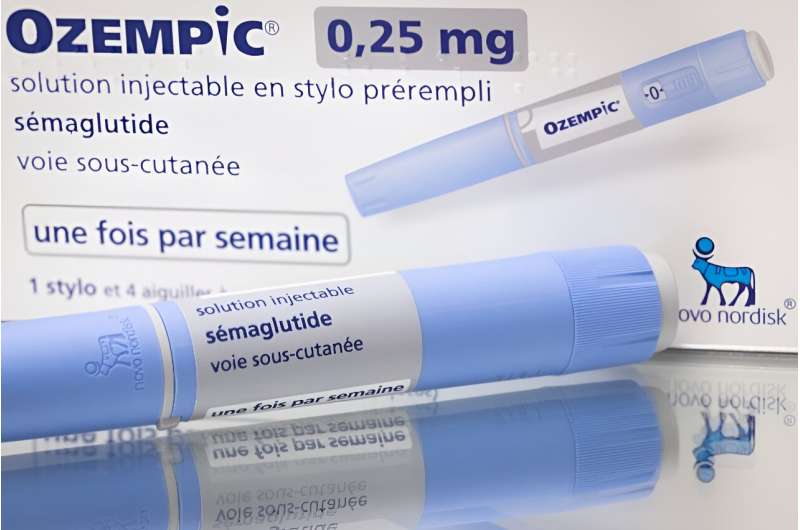The success of anti-diabetic drup Ozempic and anti-obesity treatment Wegovy has seen Novo Nordisk become Europe's largest company by market capitalisation.
Danish drugmaker Novo Nordisk reported Thursday a sharp rise in third quarter sales and profits driven by the success of its anti-diabetes and anti-obesity treatments Ozempic and Wegovy.
Net profit rose to 22.5 billion kroner ($3.2 billion) in the period from July to September, a 56 percent increase from the same time last year.
Sales meanwhile rose 29 percent to 58.7 billion kroner.
The results came in slightly better than analyst forecasts of a net profit of around 21.5 billion kroner on sales of 57.7 billion.
Over the first nine months of the year, sales rose by 33 percent to 166.4 billion kroner at constant exchange rates, with a 58 percent jump in sales for Ozempic and a near five-fold increase for Wegovy.
"We are very satisfied with the sales growth in the first nine months of 2023, which is reflecting that more people than ever are benefiting from our innovative diabetes and obesity treatments," chief executive Lars Fruergaard Jorgensen said in a comment.
Ozempic is an injectable anti-diabetic treatment which became wildly popular on social networks for its slimming properties, even though it is not approved for such use.
Novo Nordisk then launched Wegovy, which has the same active ingredient as Ozempic in a different dose, but which was approved by US regulators to treat obesity.
Wegovy is also marketed in Denmark, Norway, the United Kingdom and Germany.
Obesity, which leads to many people developing diabetes, is a growing health problem, with the World Obesity Federation estimating that one in four people could be obese by 2035.
The success of the drugs has led to Novo Nordisk becoming a darling among investors who have driven up the company's share price so much that the company is now Europe's largest by market capitalization.
Novo Nordisk, which employs nearly 61,400 people in 80 countries, has also become one of the main drivers of the Danish economy.
Over the first six months of the year, GDP of the small Scandinavian country rose by 1.7 percent year-on-year, but without the contribution of the pharmaceutical industry it would have fallen by 0.3 percent, according to the national statistics office.
In its quarterly report, Novo Nordisk maintained its annual outlook of an increase in annual operating profit of between 40 and 46 percent on a rise in sales of between 32 and 38 percent.
© 2023 AFP























